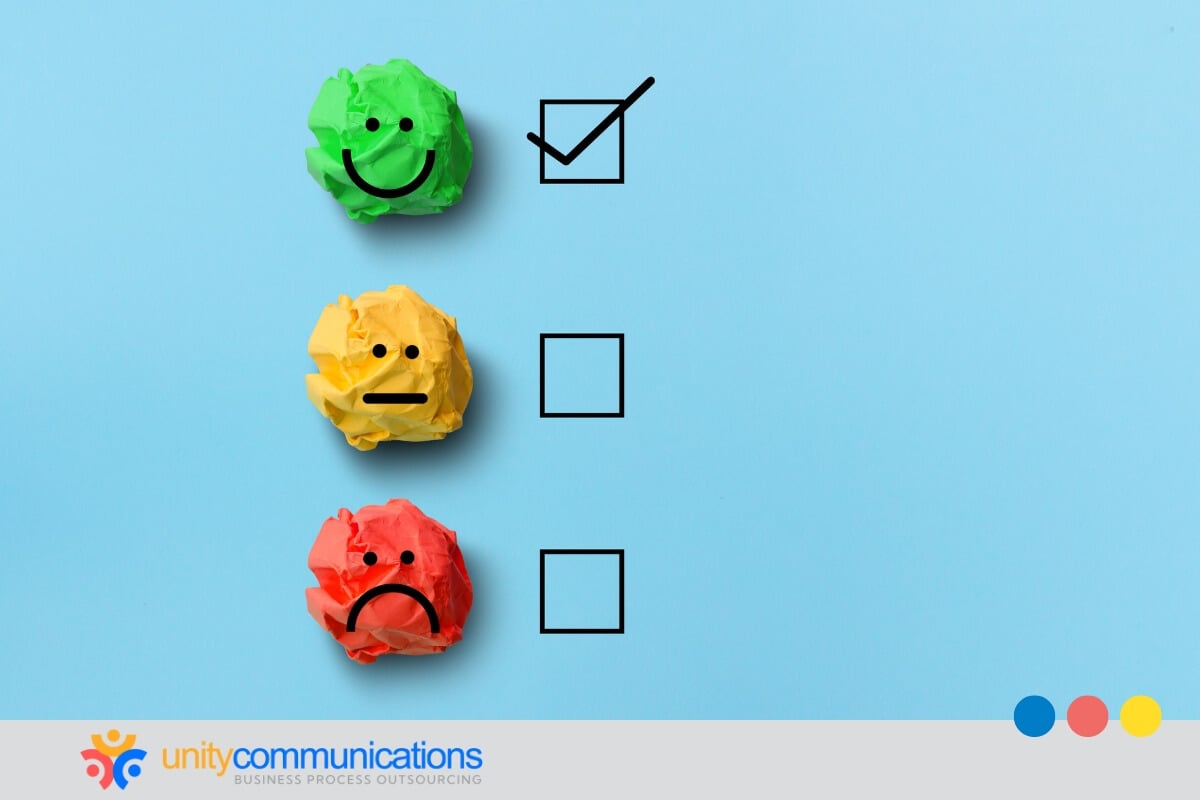IN THIS ARTICLE
Table of Contents
Customer experience is a key differentiator for consumers when choosing e-commerce stores to do business with. Therefore, brands must continually find ways to improve customer satisfaction. Achieving this goal requires building a customer service team, investing in training, setting up infrastructure, following best practices, and dynamically using technology.
Business process outsourcing (BPO) allows companies to breeze past these requirements. Since customer support services are at the core of BPO firms, their knowledge of best practices and service standards surpasses that of internal call centers.
This article discusses BPO customer support solutions, their benefits, potential challenges, and real-world successful implementations. Keep reading!
How BPO Enhances E-commerce Experience

Customer support teams are on the front lines, representing the store, solving problems, and building positive customer relationships. Prioritizing this function allows online stores to enjoy various benefits, including favorable feedback, more loyal customers, and higher revenue.
BPO firms offer personalized customer support solutions to meet the needs of their e-commerce clients. The contact channels, number of agents, and service length may differ. However, clients who outsource customer service want the same thing—excellent support for each customer interaction.
Here are ways a BPO provider can improve the e-commerce customer service experience.
Increasing First Contact Resolutions (FCR)
FCR refers to customer issues solved in the initial interaction. If customers need to call more than once to resolve a problem, it impacts the overall customer experience. Customer effort, or how much effort a buyer must put forth to address their concern, can also affect FCR.
Repeat and transferred calls require more effort and lead to higher buyer dissatisfaction. Solving the issue at hand also costs the store more resources. BPO firms improve the FCR to help companies enhance the overall customer experience and minimize service costs.
Prioritizing Continuous Improvement
Customer support training is expensive. BPO organizations understand this and help their e-commerce clients by reviewing the current processes involving customer satisfaction and effort. Then, they identify areas that require training and improvement.
BPO companies that specialize in e-commerce customer support avoid processes that lead to poor satisfaction. They scrutinize agent training that results in dissatisfied customers, high agent and customer effort, and error-prone processes. They seek areas for improvement and apply controls and automation to mitigate adverse effects.
Leveraging the Best Technology
Empowering experienced and knowledgeable customer support agents with advanced technology ensures faster resolutions, reduced hold times, and more options for buyers seeking assistance.
BPO customer support solutions include advanced and future-proof technology. Service providers allow clients access to their tech stack. They also provide integration with the client’s current systems and programs. E-commerce outsourcing clients need not migrate to the BPO partner’s technology.
Instead, they should be able to improve customer support with chatbots, robotic process automation (RPA), interactive voice assistants (IVA), and analytics. RPA can automate 70%–80% of rule-based processes, leading to faster issue resolution and efficient handling of customer tickets.
Benefits of Integrating BPO Customer Support Solutions

On top of the up to 70% savings, outsourcing’s many benefits make it an ideal solution for e-commerce stores. Whether it is a complete contact center solution or an area for business continuity or expansion in contact centers, BPO firms have an essential role in customer service solutions. They provide online stores with high-quality service at a lower price.
The following are the benefits of outsourcing e-commerce customer service:
- Higher customer acquisition. BPO firms offer high-performing agents to improve close rates for inbound or outbound calls. Those specializing in e-commerce can effectively handle sales campaigns, write successful scripts, and train agents to achieve high sales performance. Such functions take online stores years to develop in-house.
- Improved customer retention. Retaining customers is critical and gives companies higher customer lifetime value. The existing customer base is a constant source of revenue. Quality BPO customer support solutions solve all customer questions promptly. Meaningful interactions with immediate solutions retain more customers.
- Higher customer satisfaction rates. Customer satisfaction increases by working on customer effort, touchpoints, process efficiency, agent knowledge, and communication channels. BPO companies deliver and invest in tools to ensure service-level agreement (SLA) compliance.
- Better bonds between brands and customers. Each customer interaction is an opportunity to create rapport. Doing so helps stores get repeat business, improve customer loyalty, and gain a good reputation. BPO companies are more experienced in building rapport, training agents, and delivering quality interactions.
Example of Successful Integration of BPO Customer Support Solutions
One example of a successful BPO customer support implementation is Cymax, a home and office furniture brand.
The company’s support agents manually answered customer questions by logging into social media platforms and marketplace tools. This approach affected the FCR and increased customer dissatisfaction.
It partnered with a BPO provider to gain complete visibility into customer interactions across different channels. The result was better response times using a shared inbox for all marketplaces. Agent productivity also increased because of role-specific access to customer information.
Different Roles BPO Customer Support Solutions Offer
So, what is BPO’s role in customer support solutions? The following are the common duties and responsibilities of customer service teams:
- Answering questions about company services and products. This step is a key responsibility. Knowledgeable agents are crucial to a stellar customer service experience since they can provide accurate, quick, and comprehensive answers.
- Processing orders. Third-party agents also receive and process orders and handle product returns, refunds, exchanges, and cancellations.
- Troubleshooting technical issues. Help desk support agents provide ongoing technical assistance. This function requires a deep understanding of the brand and its services.
- Gathering and analyzing feedback. E-commerce customer service agents manage negative feedback and turn unpleasant moments into positive brand experiences.
- Tracking key performance indicators (KPIs). This function includes assessing performance metrics such as customer satisfaction scores, net promoter score (NPS), and average resolution time (ART).
Potential Challenges in BPO Customer Support Integration
BPO customer support solutions are ideal for many online stores that want to cut costs, enhance efficiency, and work with global talent. However, it also comes with inherent risks and challenges that store owners must carefully mitigate and manage. Below are some challenges and ways to address them:
- Integration and alignment. You want to ensure that your BPO partner works as an extension of your business and can provide compatible solutions to your existing tools. Do this by clearly defining and communicating your goals, expectations, and values and building a positive working relationship.
- Data privacy and security. You must check whether the service provider follows the relevant data privacy laws and has robust policies to safeguard data from unauthorized disclosure, access, or use. Also, check if it has the required certifications, such as SOC 2 and ISO 27001, and if it performs audits regularly.
- Language and culture. The third-party team must understand and cater to end customers’ preferences, needs, and expectations. Choose a firm with relevant language and cultural knowledge and give its team sufficient guidance and information about your customer profiles and segments.
- Regulatory and legal compliance. Your outsourcing partner must follow the regulations and laws for your location, target audience, and industry. It should also have the right permits to operate legally. Ensure this by conducting thorough research, regularly reviewing and updating contracts, and consulting legal experts.
The Bottom Line

A stellar customer service experience is a revenue generator. Understanding the inner workings of customer service helps you leverage it.
In the dynamic e-commerce industry, compelling customer experience management with a BPO partner is crucial. Online stores can surpass customer expectations and realize a solid competitive edge by investing in technology, prioritizing personalization and FCR, enabling continuous improvement, and ensuring data security.
Let’s connect to learn how you can improve customer service for your online store with outsourcing.





